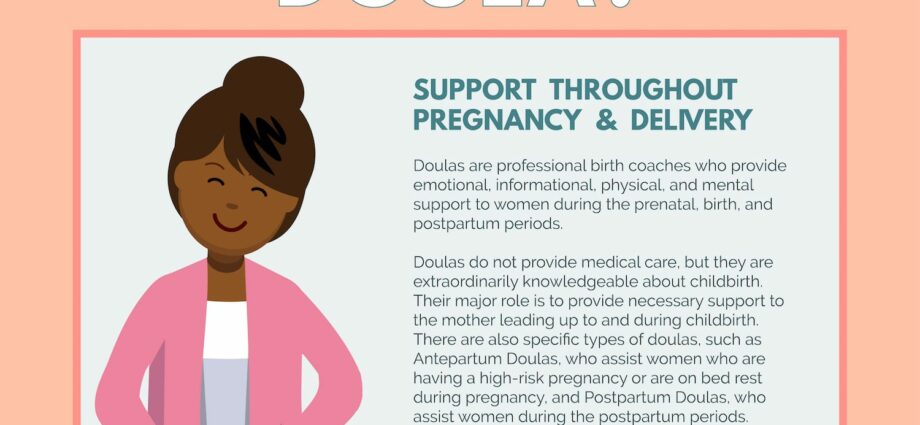Contents
Childbirth professionals: what support for the mother-to-be?
Gynecologist, midwife, anesthesiologist, childcare assistant… The health professionals making up the obstetric team vary according to the size of the maternity unit and the types of childbirth. Portraits.
The wise woman
Specialists in women’s health, midwives have completed 5 years of medical training. In particular, they play a key role with future mothers. Working in private practice or attached to a maternity hospital, they can, in the context of a so-called physiological pregnancy, that is to say a pregnancy proceeding normally, ensure the follow-up from A to Z. They can confirm the pregnancy and complete the declaration, prescribe biological assessments, ensure monthly prenatal consultations, perform screening ultrasounds and monitoring sessions, vaccinate the expectant mother against influenza if the latter wishes … It is also with them that the future parents will follow the 8 sessions of preparation for birth and parenthood reimbursed by Health Insurance.
On D-day, if the birth takes place in the hospital and goes without a hitch, the midwife accompanies the mother-to-be throughout the labor, brings the baby into the world and performs her first examinations and first aid, assisted a childcare assistant. If necessary, she can perform and suture an episiotomy. In the clinic, on the other hand, an obstetrician gynecologist will be systematically called for the expulsion phase.
During the stay in the maternity ward, the midwife provides medical surveillance for the mother and her newborn. She can intervene to support breastfeeding, prescribe suitable contraception, etc.
The anesthesiologist
Since the 1998 perinatal plan, maternities performing less than 1500 deliveries per year are required to have an on-call anesthetist. In maternity hospitals with more than 1500 deliveries per year, an anesthetist is on site at all times. Its presence in the delivery room is only required in the event of an epidural, cesarean section or the use of forceps-type instruments requiring anesthesia.
Regardless, all expectant mothers must meet with an anesthesiologist before childbirth. Whether or not they have planned to benefit from an epidural, it is essential that the medical team who will take care of them on the D-day have all the necessary information to be able to intervene safely in the event that anesthesia should take place. .
The pre-anesthetic appointment, which lasts about fifteen minutes, is usually scheduled between the 36th and 37th week of amenorrhea. The consultation begins with a series of questions concerning the history of anesthesia and any problems encountered. The doctor also takes stock of the medical history, the existence of allergies … Then place the clinical examination, mainly centered on the back, in search of possible contraindications to the epidural. The doctor takes the opportunity to provide information on this technique, while recalling that it is not compulsory. Once again, going to the pre-anesthetic consultation does not necessarily mean that you want an epidural. It is simply a guarantee of additional security in case of unforeseen circumstances on the day of delivery. The consultation ends with the prescription of a standard biological assessment to detect possible blood clotting problems.
The obstetrician gynecologist
The obstetrician gynecologist can ensure the follow-up of the pregnancy from A to Z or intervene only at the time of childbirth if the follow-up has been ensured by a midwife. In the clinic, even if everything is going normally, an obstetrician gynecologist is systematically called to take the baby out. At the hospital, when all goes well, the midwife also proceeds with the expulsion. The obstetrician gynecologist is called only if it is necessary to perform a cesarean section, to use instruments (forceps, suction cups, etc.) or to carry out a uterine revision in the event of incomplete delivery. Future mothers wishing to be given birth by their obstetrician gynecologist must register in the maternity hospital where he practices. However, attendance cannot be 100% guaranteed on the day of delivery.
The pediatrician
This child health specialist sometimes intervenes even before childbirth if a fetal anomaly is detected during pregnancy or if a genetic disease requires special monitoring.
Even if a pediatrician is systematically on call in the maternity unit, he is not present in the delivery room if everything is going normally. It is the midwife and the childcare assistant who provide first aid and ensure the good shape of the newborn.
On the other hand, all babies must be examined at least once by a pediatrician before they return home. The latter records his observations in their health record and transmits them at the same time to the maternal and child protection services (PMI) in the form of a so-called “8th day” health certificate.
During this clinical examination, the pediatrician measures and weighs the baby. He checks his heart rate and breathing, feels his stomach, collarbones, neck, examines his genitals and fontanels. He also checks his eyesight, ensures the absence of congenital dislocation of the hip, monitors the proper healing of the umbilical cord … Finally, he carries out a neurological examination by testing the presence of so-called archaic reflexes: baby grips the finger that ‘we give it to him, turn his head and open his mouth when we brush his cheek or lips, make walking movements with his legs …
Nursery nurses and childcare auxiliaries
Nursery nurses are state-certified nurses or midwives who have completed a one-year specialization in childcare. Holders of a state diploma, childcare auxiliaries work under the responsibility of a midwife or a nursery nurse.
Nursery nurses are not systematically present in the delivery room. Most often, they are called only if the condition of the newborn requires it. In many structures, it is the midwives who carry out the baby’s first health examinations and provide first aid, assisted by a childcare assistant.










